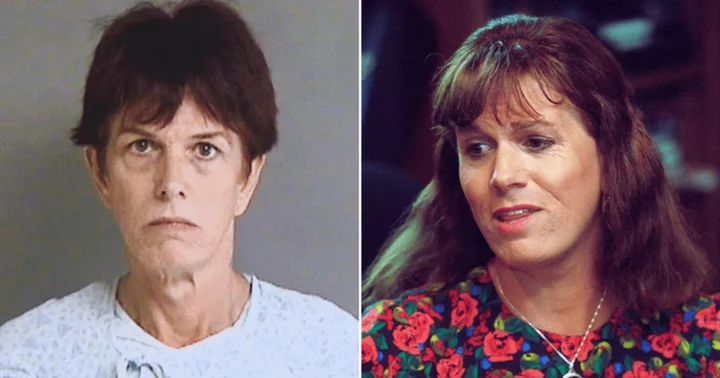CHOWCHILLA, CALIFORNIA: Dana Rivers — once a transgender activist and respected high school teacher — was sentenced to life in prison without parole for the brutal murder of a married lesbian couple and their adopted son in their Oakland, California, residence on the fateful night of November 11, 2016. After being found guilty of the heinous crime last November, Rivers spent seven years in county jail before the recent sentencing. However, the decision to place Rivers in a California state women's prison has ignited a fresh wave of controversy surrounding transgender prisoners.
Controversy surrounding transgender prisoners
Under a California law enacted in 2021, prisoners are granted the opportunity to request placement based on their self-identified gender, resulting in Rivers being transferred to the Central California Women's Facility in Chowchilla following the sentencing. Activists, however, argue that Rivers' crime constituted a "hate crime against women," raising concerns about her confinement in an all-women's prison.
The gruesome details of the crime unfolded as Rivers mercilessly shot Charlotte Reed, 56, twice and inflicted 40 stab wounds upon her. Patricia Wright, 57, Reed's wife, fell victim to Rivers' gunfire, being struck in the back and left breast, and was subsequently stabbed in the neck and shoulder. Tragically, their 19-year-old adopted son, Benny, also lost his life, succumbing to Rivers' fatal gunshot. Responding to a neighbor's call reporting gunshots, law enforcement officers arrived at the scene only to find a blood-soaked Rivers, then 61 years old, clutching a can of gasoline. Court documents revealed the discovery of knives and ammunition concealed within Rivers' pockets.
Trial and Sentencing
Rivers and Reed were acquainted through their membership in the exclusive all-female motorcycle club, the Deviants, where Rivers held the role of an "enforcer." Despite an arduous legal battle to avoid trial, citing claims of legal insanity, Rivers was ultimately convicted by an Alameda County jury in November and received her sentencing last week. Prior to the shocking crime, Rivers had been a prominent and trailblazing transgender activist who fearlessly shared her transition journey in 1999, even candidly discussing her experience with ABC News' 20/20 shortly after undergoing gender reassignment surgery in 2001.
Activist Kara Dansky vehemently asserts that the killings constituted a "hate crime" and argues that the jury should have been aware of Rivers' assigned male birth gender. Dansky, who attended parts of Rivers' trial, provided updates on her website and referred to Rivers using male pronouns when speaking to the New York Post. Dansky stated, "When women commit acts of violence, they rarely exhibit such extreme brutality. There was something particularly abhorrent about the manner in which these acts were carried out and the evident animosity he harbored. Based on the information I have, I believe he killed her because he resented her existence and felt imprisoned by his own identity. Consequently, he should not be confined in a women's prison."
Transgender Respect, Agency, and Dignity Act
Activists partially blame the controversial inclusion of transgender women in female-only prisons to California's SB132, known as the 'Transgender Respect, Agency, and Dignity Act,' authored by State Sen. Scott Wiener. Amie Ichikawa, the 41-year-old founder of Women II Women, a support group for former and current female prisoners, expressed her dismay at the legislation, stating, "I was overcome with disgust upon hearing about this law. It grants privileges to transgender inmates that no other prisoners in the state are entitled to."
Ichikawa, who served five years at Chowchilla due to a drug-related incident, acknowledged that she does not necessarily advocate for Rivers, who reportedly underwent gender reassignment surgery, to be placed in a men's prison. However, she emphasized the need for caution when determining Rivers' placement within Chowchilla, as she believes Rivers committed a "hate crime." In the absence of dedicated facilities for transgender inmates, Ichikawa asserted that additional measures should be implemented to ensure the safety of both transgender and cisgender female inmates sharing the same prison environment.
Perspectives from within the prison system
According to Ichikawa, biologically female inmates harbor apprehension toward transgender inmates, even those who have undergone gender-affirming surgeries. She stated, "The presence of a transgender woman during the intake process elicits significant anxiety among inmates assigned female at birth. Even when transgender women have completed their surgical transition, an eruption of anger can easily revert them to a more aggressive and traditionally masculine demeanor." Ichikawa also contended that the Wiener bill grants transgender women inmates the power to select their preferred living arrangements within women's prisons, including the freedom to choose cellmates and housing units.
Sharing a distressing personal experience, Ichikawa recounted, "For three agonizing months, I endured abuse from my cellmate. When I approached a housing officer to request a transfer to a different unit, she responded callously, 'What kind of Asian are you—Chinese, Japanese, or on your knees?' The encounter devastated me. Yet, if I were a transgender inmate, I would have the privilege to select my desired living environment and compatible cellmate."
Nationwide activism
The campaign against housing transgender women in female prisons has sparked a nationwide movement. In April, #GetMenOut activists staged a protest at the state Capitol in Trenton, where they read letters from four biologically female inmates at the Edna Mahan Correctional Facility, highlighting an incident where a transgender inmate impregnated two women. Melissa Adams, Rivers' attorney, expressed her profound disappointment with statements made by Ichikawa and other activists who denounce Rivers' confinement at Chowchilla. Adams told the Post, "It is truly shocking that in 2023, we are still grappling with these debates. I believe these individuals are fueled by hatred. For the record, Dana Rivers will not be impregnating anyone while in prison."
Adams conceded, however, that the true events and motives leading up to the night of the triple homicide in Oakland may never be fully comprehended. Although Rivers pleaded not guilty and a notice of appeal has been filed, the defense's arguments proved insufficient. Adams submitted a 36-page motion asserting that prosecutors placed excessive emphasis on Rivers' involvement with the biker gang, neglecting to adequately explore the alleged conflicts between Reed and Wright, as reported earlier this month by the Mercury-News. At one point during the trial, Adams unsuccessfully argued that Rivers was legally insane at the time of the murders.
Who is Dana Rivers?
Originally born as David Warfield, Rivers was an ordinary suburban Sacramento teacher before embarking on hormone treatments and surgical procedures in 1999. After informing school district officials of her transition plans, Rivers faced administrative leave following complaints from a small group of parents, eventually leading to her dismissal. Rivers pursued legal action and reached a settlement of $150,000, which partially funded her $50,000 sex reassignment surgery in 2000.
As a transgender activist, Rivers played an instrumental role in the group known as Camp Trans, which successfully campaigned in 2015 to bring an end to the annual women-only music festival for lesbians in Michigan, known as MichFest. However, her life took a somber turn when she became associated with the Deviants, an all-female faction of the notorious Hells Angels biker gang, assuming the role of an "enforcer" under the moniker "Edge" and adorning herself with numerous tattoos.
During the trial, prosecutors presented evidence to the jury indicating Rivers' pride in her affiliation with the gang, highlighted by a tattoo proclaiming her status as a "1 percenter," a term referencing outlaw motorcycle clubs. They asserted that Rivers had a connection with Reed through the latter's brief membership in the Deviants, suggesting that the motive behind Reed's murder, though never definitively established, could potentially stem from resentment over Reed's departure from the club. Prior to the tragic incident, Rivers candidly expressed her anguish over living as a man despite a lifetime marred by depression and suicidal thoughts, characterizing her life as a catastrophic "train wreck."









